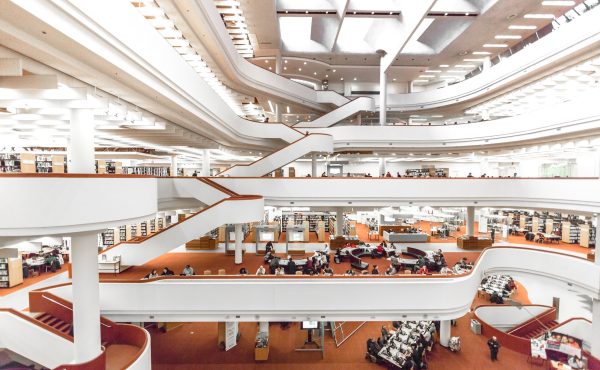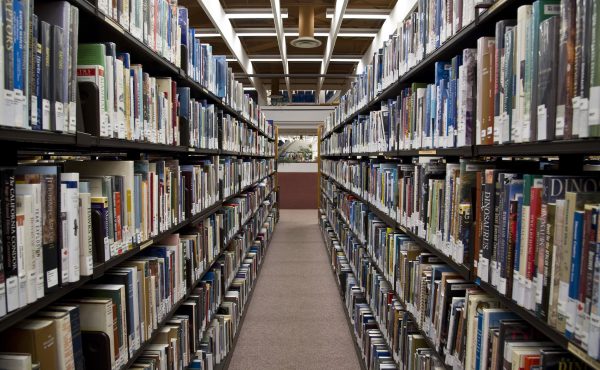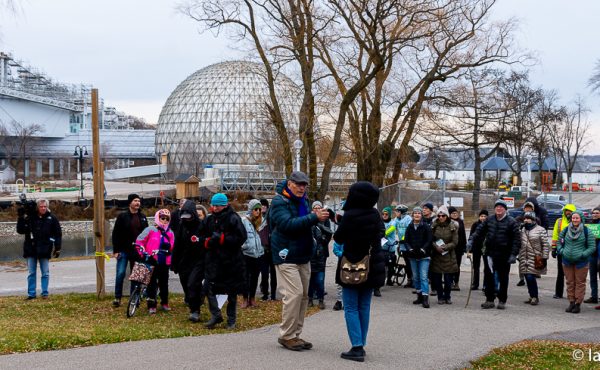
![]()

In recent Canadian history, three previous political demonstrations led to confrontations with police and subsequent legal actions or official inquires: the 2003 inquiry by the Ontario government into the 1995 killing of Dudley George during a First Nations protest at Ipperwash Provincial Park; the RCMP Complaints Commission inquiry into the arrest of 52 protesters at a 1997 demonstration during the Asia-Pacific Economic Cooperation summit in Vancouver; and the trial of anti-poverty activist John Clarke following a militant demonstration at Queen’s Park on June, 15, 2000 (the charges were stayed).
Notwithstanding the general public’s apparent indifference to alleged Charter violations that occurred during the G20 Summit, many important questions remain unanswered, and simply cannot be thoroughly addressed through the internal investigation/deputation process promised by the Toronto Police Services Board. Here’s my top ten list:
1. What role, if any, did OPP Commissioner Julian Fantino (and former Toronto police chief) play in the decision-making about police operations on the Sunday of the summit?
2. Did City of Toronto public health/building officials inspect the alterations to the film studio/detention centre prior to the summit weekend, what were their recommendations, and did they ensure these were followed?
3. Did the Prime Minister’s Office issue any kind of directive to the Integrated Security Unit (ISU) during the course of the weekend in response to reports about violence in the downtown, and what was the content of the order?
4. Did Toronto Police or members of the ISU command instruct the Toronto Fire Department to not extinguish the fires in the cruisers or in any way prevent access to the burning vehicles?
5. What role, if any, did the Toronto Police Services Board play in the decisions made about the use of Toronto Police Service resources during the summit?
6. Did the ISU have a pre-established strategy for the deployment of Toronto police officers during the summit weekend, and was that strategy followed?
7. Is there any evidence that the ISU possessed reliable intelligence about the tactics used by the Black Bloc or other militant anti-globalization organizations but deliberately chose not to share this information with downtown merchants, residents and property owners?
8. What was the empirical and intelligence basis of the federal government’s decision about the size of the security force assigned to the summit?
9. Did the ISU seek out legal opinions about the treatment of detained demonstrators prior to the summit weekend, and, if so, what was the content of the advice proffered?
10. What role did senior City of Toronto officials, including those in the mayor’s office, play in the decision to halt transit service into the core on Saturday afternoon?
photo by Sam Javanrouh




13 comments
Good questions, but don’t expect too much: Torontonians are too pragmatic about making money, but not about keeping rights; in Montreal there’d be a lot more anger.
I’d like to see what Mayor Miller and the Toronto Police Services have to say about the ubiquitous, wide-spread and well-documented temporary evaporation of our Charter rights.
When a York region police officer responds to a peaceful protester’s reluctance to forgo his Chart rights to unlawful search by stating (in the presence of Toronto Police officers, no less):
“There are no civil rights here in the area. How many times to you need to be told that?” and “This isn’t Canada,” and “This is our area,” we know that something has gone terribly wrong.
When hundreds of people are herded, arrested, and held for hours and hours with no charges or access to legal counsel or a phone call, we know that something has gone terribly wrong.
Anything short of a public inquiry would be a travesty.
Before a public inquiry, which doesn’t lay blame but recommend changes, there should be a special prosecutor assigned to investigate police actions and lay criminal or Police Act charges as appropriate.
Police and other government officials can violate people’s rights, but are rarely personally held to account. Sure a victim might get compensation paid for by the government or an inquiry will make recommendations after the official has retired, but that is no real disincentive.
A clear message must to sent that blatantly violating people’s rights is a serious crime. More serious then breaking windows.
I’d like to thank John Lorinc for being one of the very few writers to preface “Charter violations” with “alleged”.
Also, I’ll credit John for being among the VERY few writers to offer an objective and dispassionate view of the aftermath. Luckily John seems to know that there’s a) enough fire and brimstone surrounding this issue for 1,000 writers and b) we can’t learn anything from rhetoric.
Should any of these inquiries go forward, the crowd I’ve deemed the “weeping class”, who have already written off the Police and the city (and have opened weeped about the loss on their respective Twitters), would do well to keep a good distance. Their passion is admirable, but their lack of objectivity is as much an enemy of openness and honesty as the alleged Police actions for which they’d seek to gain redress.
You know and I know that nothing will ever come of this.
It seems to me that either we need an inquiry or the new rule is just that the toughest mob wins, never mind the technicalities.
I don’t think that the top cops, the Mayor, the Premier, and the Prime Minister really want to live in a world where he can be bundled into a van at a moment’s notice to lusty cries of, “This isn’t Canada!” I certainly don’t.
So, an inquiry it is, then.
For “he can be,” read “they can be.”
Fantino is officially retired. Try calling him on the carpet when he’s a private citizen. And it seems pretty doubtless that if someone told his foot soldiers to crack skulls, it was Fantino. Let’s also not forget that Blair was Fantino’s former #2 guy, so who do you think was giving orders to whom on the G20 weekend.
Worth a thought…but holy moly…I remain so cynical about the whole affair. Too much secrecy and staying “on message” from the cops and too much grandstanding and rumour-mongering from the “protesters”…and I don’t even know who the hell the protesters are anymore. It’s like pitting the 800lb gorilla against a cloud of smoke.
On the Saturday night of the weekend I wrote that in my opinion the Police had done a decent job of containing the people while not engaging them physically. Yeah some windows got smashed, but so what?
Sunday…that’s where the whole thing gets hazy. So much anger on all sides. The cops were pissed (I think), the protesters were super pissed (or so it seemed) and there was absolutely NO ONE in the middle calling for calm. It’s all so confusing and nobody seems interested in truth, rather everyone just wants to push forward their agenda. Either the cops are assholes, the protesters are jerks or none of the above.
Me…I just don’t know. I don’t trust either side…
On Sunday there may have been anger among the protesters but all the protests where peaceful. I’m not aware of any reports of significant violence or vandalism on Sunday.
On Sunday it was the police who where going crazy.
John, both Smitherman and Rossi posted statements today about this issue. I am curious as to whether you have seen these, and if so, what do you think of them?
Also, not sure if Ford and Thomson posted statements, but I did not see anything, so feel free to include them in this comment too.
My own impression is that it is very difficult for politicians (or candidates) to challenge the police on issues like this. So it’s a delicate line they need to toe.
Who is handling this well in the political arena in your view, all things being equal?
Elizabeth, Rob Ford’s comments at council make his position pretty clear.
As for the statements from the Smitherman and Rossi campaigns — they’re very similar and fairly mild in tone, although Smitherman goes further and dares to ask for an inquiry that looks at the actions of all three levels, which is pretty bold, considering his former position. Neither address the question of whether they want an inquiry in which there are only deputations/presentations, or one that allows for cross-examination of sworn witnesses. It’s not clear yet whether the Toronto Police Services board investigation will permit that kind of questioning, and I think it’s crucial to get a clearer sense of what happened.
As neither a government supporter nor a legitimate protester but just a Toronto citizen who sat at home and watched the G20 weekend unfold on television, I have two questions:
Given that it’s highly unlikely that the police officers responsible for those four police cars were frightened into running away from their vehicles thus leaving them vulnerable to anti-social elements, who gave the order to deliberately abandon them? And why?
I believe answers to those questions will go a long way to understanding the whole mess.
“Given that it’s highly unlikely that the police officers responsible for those four police cars were frightened into running away from their vehicles”
The Toronto Star story on why one of the cars where abandon: The fire, the accused and the cop.